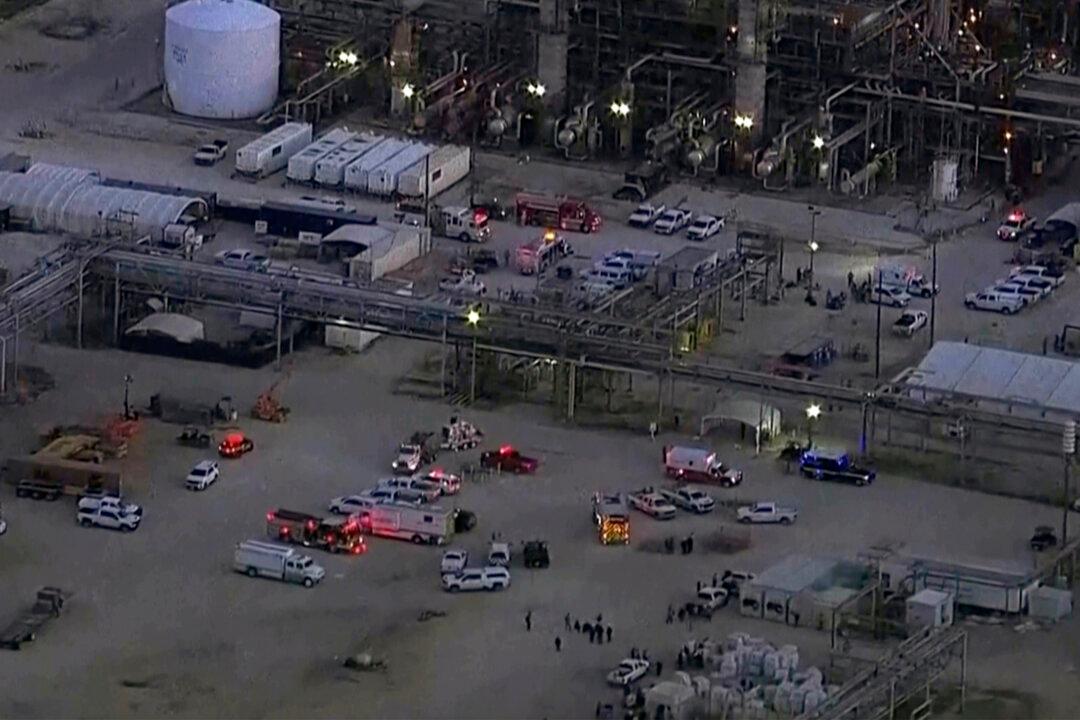At least two people have died and multiple others have been injured following a chemical leak at a Pemex oil refinery in Deer Park, Texas, on Thursday, police said.
Up to 35 people at the refinery were treated for exposure to hydrogen sulfide gas. The leak was reported a 4:20 p.m., Harris County Sheriff Ed Gonzalez told a press conference.




